Find Help
More Items From Ergsy search
-

Blood Product Transfusions
Relevance: 100%
-
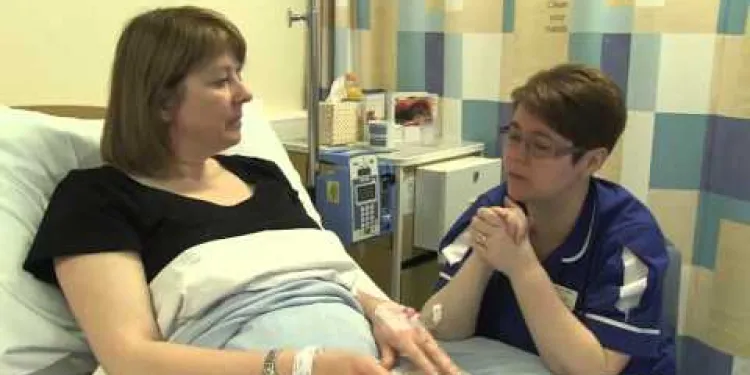
Blood Transfusion
Relevance: 98%
-

Can West Nile Virus spread through blood transfusions or organ transplants?
Relevance: 34%
-
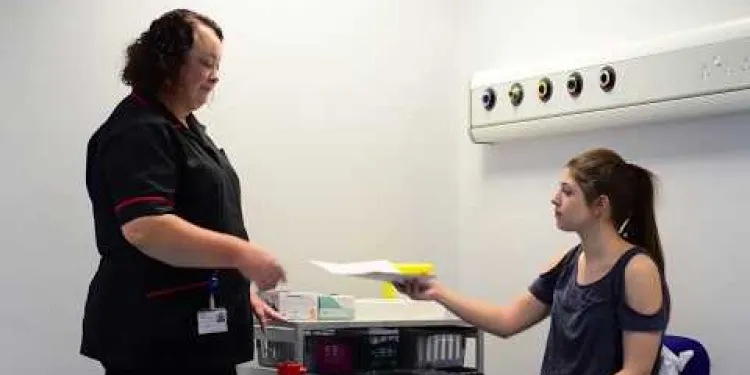
Having a blood test
Relevance: 34%
-
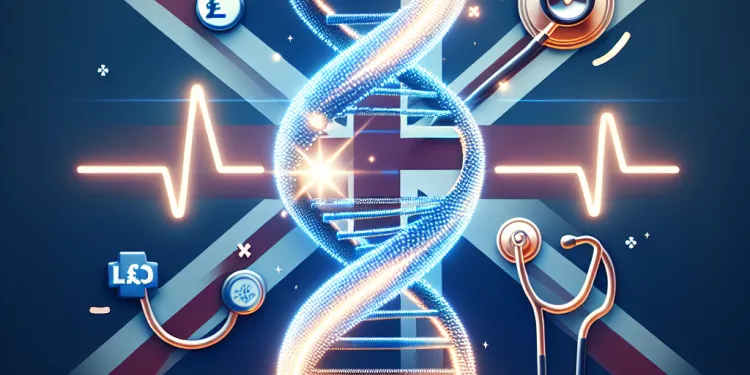
How is sickle cell disease treated?
Relevance: 32%
-
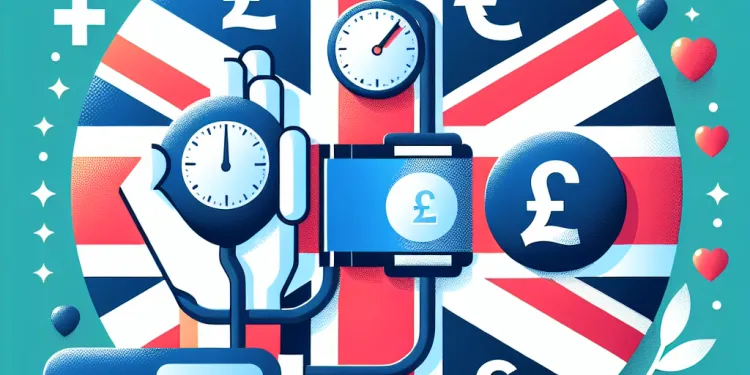
What is high blood pressure?
Relevance: 32%
-

Seven Reaasons For Measuring blood pressure
Relevance: 30%
-
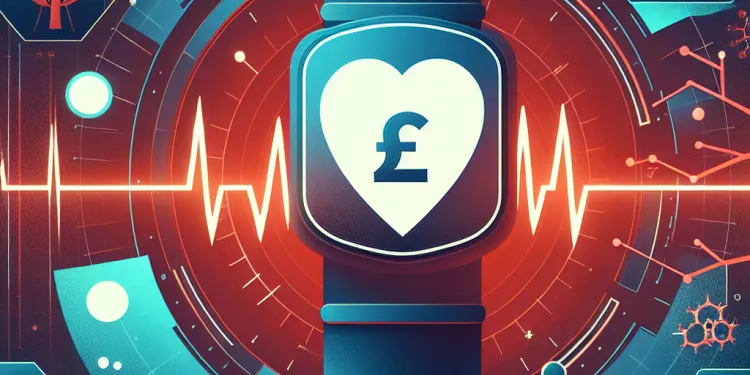
What causes high blood pressure?
Relevance: 30%
-
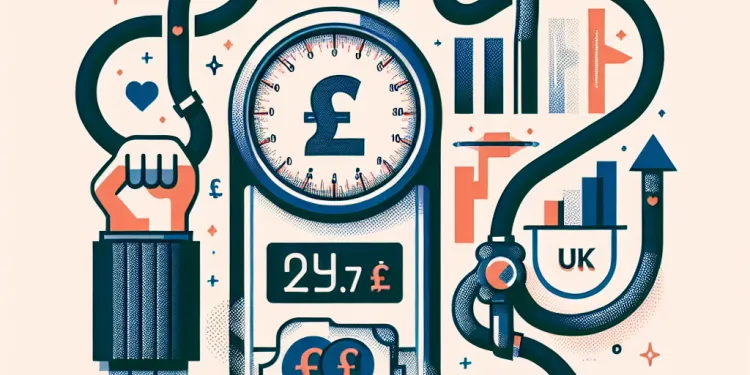
How is high blood pressure diagnosed?
Relevance: 30%
-

Can high blood pressure be prevented?
Relevance: 30%
-

Does caffeine affect blood pressure?
Relevance: 30%
-
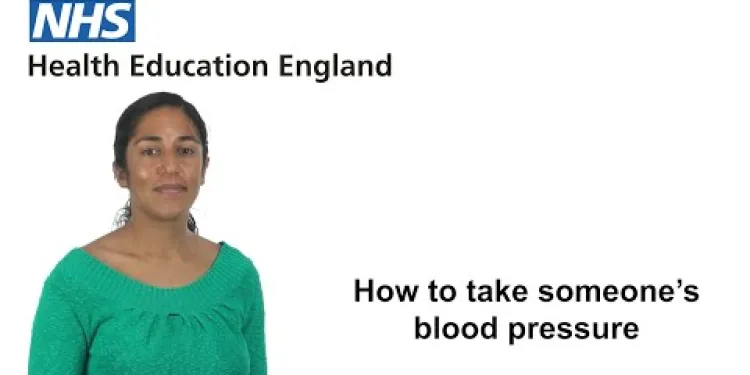
How to take someone's blood pressure
Relevance: 29%
-

What are the risks of having high blood pressure?
Relevance: 29%
-
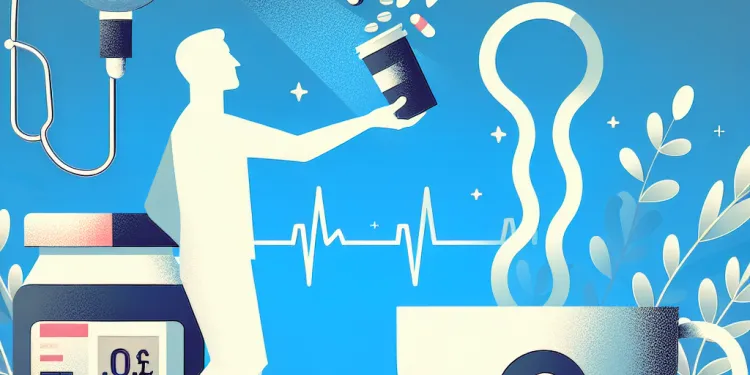
Is it safe to take blood pressure medication with coffee?
Relevance: 29%
-
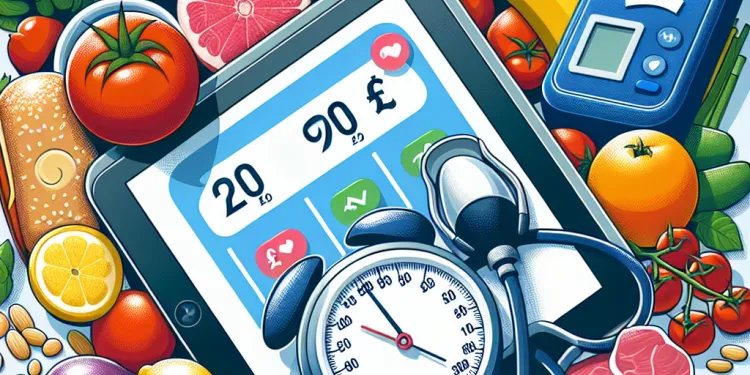
How does diet affect blood pressure?
Relevance: 29%
-
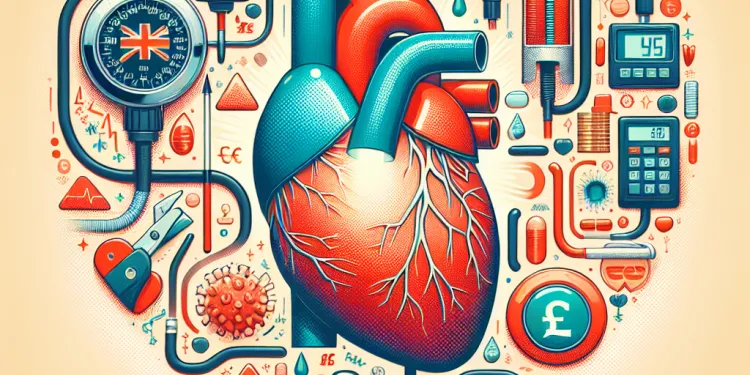
How can high blood pressure be treated?
Relevance: 29%
-

Can stress cause high blood pressure?
Relevance: 29%
-

What is the role of potassium in managing blood pressure?
Relevance: 29%
-

How does caffeine affect blood pressure?
Relevance: 29%
-

How often should I check my blood pressure?
Relevance: 29%
-

Can Baxdrostat affect blood sugar levels?
Relevance: 29%
-

Can decaffeinated coffee affect blood pressure?
Relevance: 28%
-

How do medications help control high blood pressure?
Relevance: 28%
-
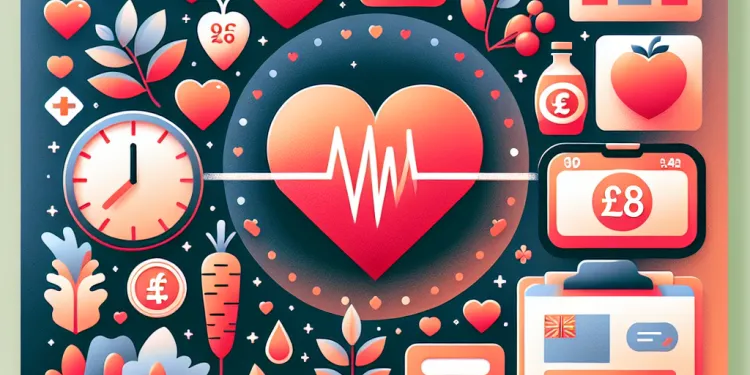
What lifestyle changes can lower blood pressure?
Relevance: 28%
-

Why is high blood pressure called a 'silent killer'?
Relevance: 28%
-

Blood Poisoning - Sepsis
Relevance: 28%
-
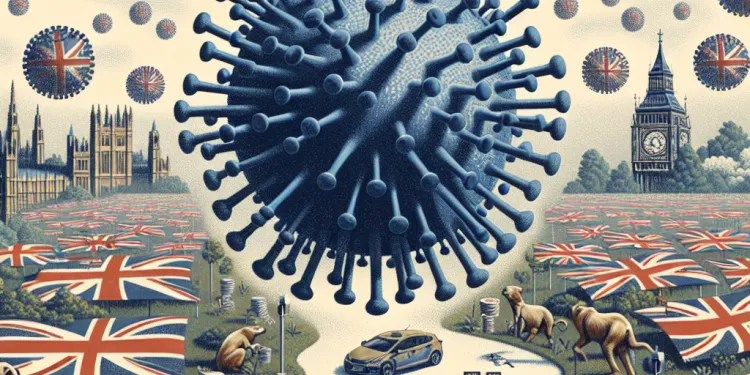
How is West Nile Virus transmitted?
Relevance: 27%
-

How often should I check my blood glucose levels?
Relevance: 27%
-

Can Ozempic cause low blood sugar (hypoglycemia)?
Relevance: 27%
-

How does Ozempic affect blood sugar levels?
Relevance: 27%
-
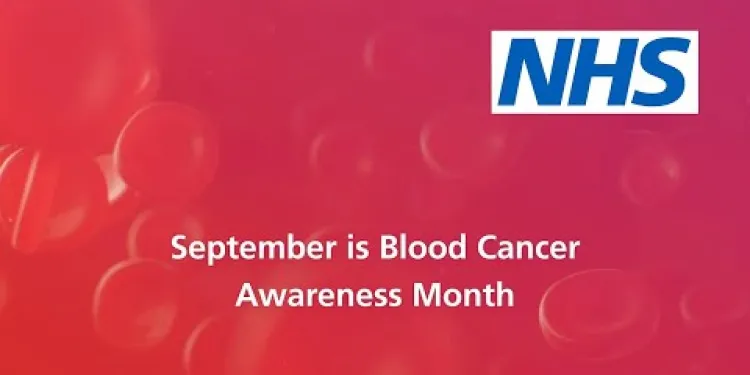
4 facts about blood cancer that you should know | NHS
Relevance: 27%
-
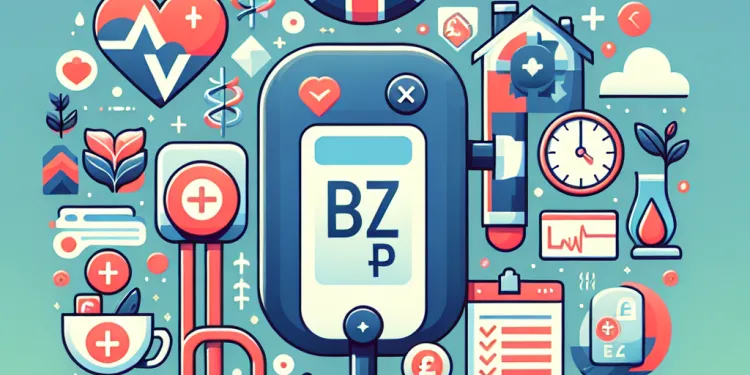
Can high blood pressure lead to other health problems?
Relevance: 27%
-
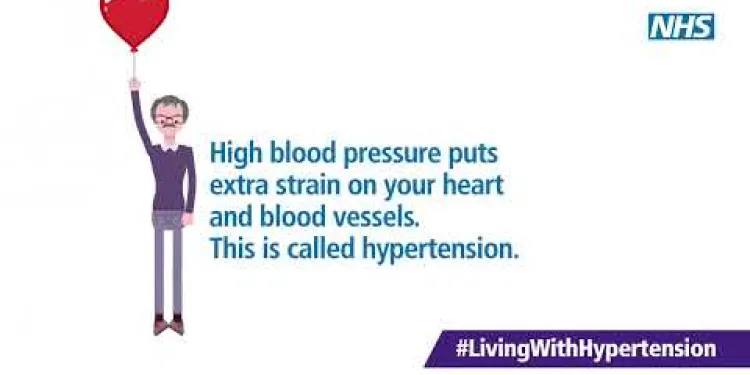
Blood pressure too high? Living with hypertension animation
Relevance: 27%
-
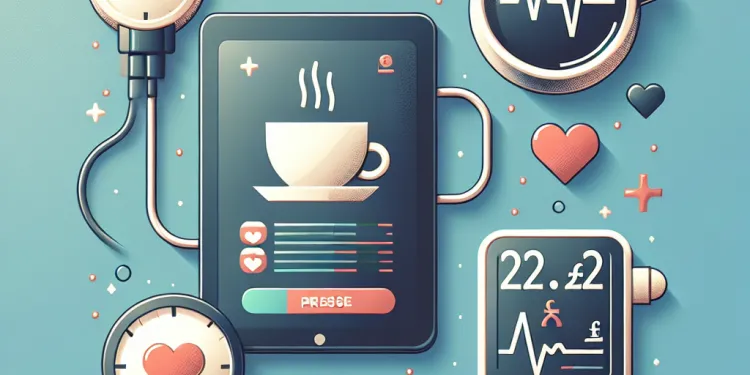
Are there any other factors in coffee that may affect blood pressure?
Relevance: 27%
-
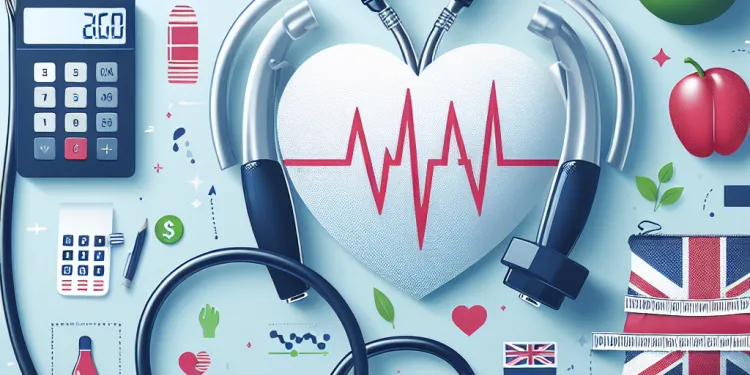
Can weight loss help reduce high blood pressure?
Relevance: 27%
-
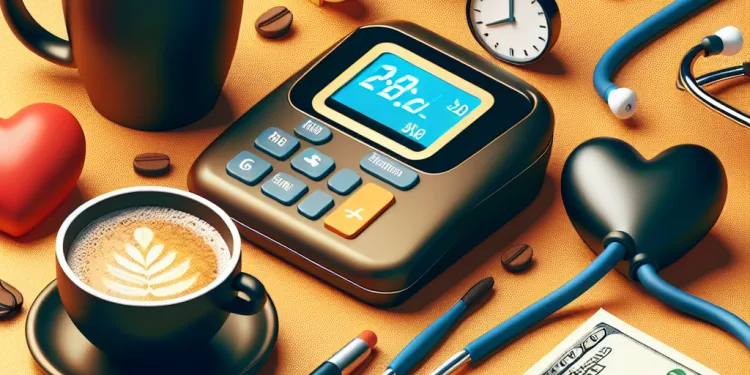
Should people with high blood pressure avoid coffee entirely?
Relevance: 27%
-
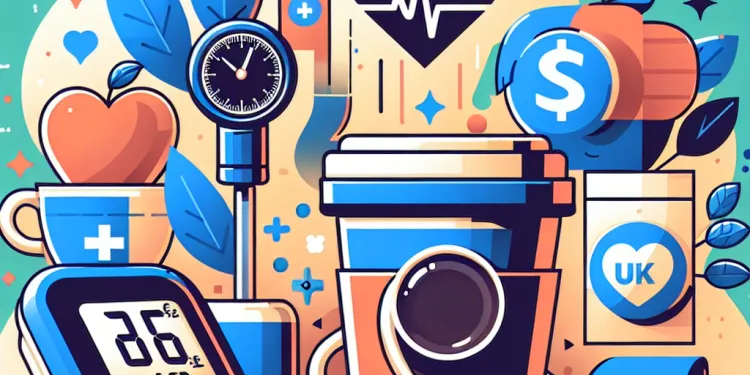
How can one minimize the impact of coffee on blood pressure?
Relevance: 27%
-
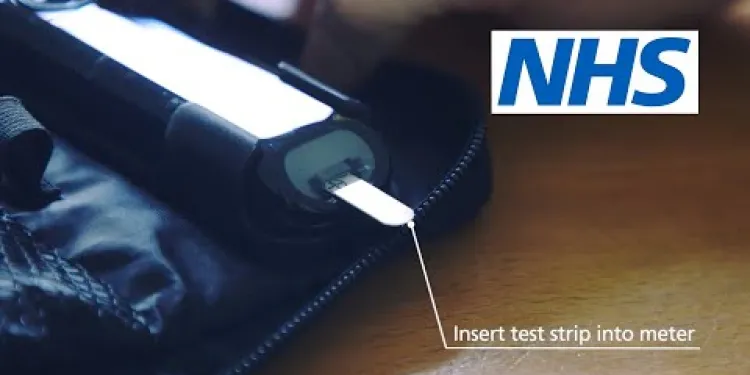
Diabetes: How to check your blood glucose level | NHS
Relevance: 27%
-

Is Your Morning Coffee a Risk Factor for High Blood Pressure?
Relevance: 27%
-

Can Zika virus be spread from person to person in the UK?
Relevance: 26%
Understanding Blood Transfusion
What is a Blood Transfusion?
A blood transfusion is a medical procedure that involves transferring blood or blood components from a donor to a recipient's bloodstream. This can be a life-saving intervention for patients dealing with severe blood loss, surgery, anaemia, or certain medical conditions that affect blood cells. In the United Kingdom, the procedure is carefully regulated to ensure safety and effectiveness.
Reasons for Blood Transfusion
Blood transfusions are performed for a variety of medical reasons. They are commonly needed during surgery to compensate for blood loss, after traumatic injuries, or in medical conditions like severe anaemia, leukaemia, and haemophilia. In the UK, the National Health Service (NHS) ensures that blood and blood components like red cells, plasma, and platelets are readily available to patients in need.
Types of Blood Transfusion
There are different types of blood transfusions depending on the component required:
- Red Blood Cell Transfusion: Often used to treat anaemia or significant blood loss.
- Platelet Transfusion: Used for patients with low platelet counts, often due to chemotherapy or bone marrow disorders.
- Plasma Transfusion: Helps in cases of liver disease, severe infections, or burns where clotting factors are needed.
Donating Blood in the UK
Blood donation in the UK is voluntary and altruistic, with the NHS Blood and Transplant (NHSBT) as the main organisation overseeing blood collection. Donated blood undergoes rigorous testing for infectious diseases to ensure it is safe for transfusion. Eligible donors can give blood every 12 weeks for men and 16 weeks for women.
Safety and Risks
Blood transfusions in the UK are very safe thanks to stringent screening processes and modern medical practices. However, minor risks like allergic reactions, fever, or iron overload exist. Serious complications such as infections or immune reactions are rare due to thorough testing and careful matching of donor and recipient blood types.
Conclusion
Blood transfusion is a critical medical procedure that can save lives in various medical emergencies and conditions. In the UK, the NHS ensures that blood donations are safe and properly managed, guaranteeing that patients receive the lifesaving transfusions they need. Public participation in blood donation drives is crucial to maintaining an adequate blood supply for those in need.
Understanding Blood Transfusion
What is a Blood Transfusion?
A blood transfusion is when blood from one person is given to another person. It helps people who have lost a lot of blood, need help after an operation, or have blood problems like anaemia. In the UK, doctors make sure it is done safely.
Reasons for Blood Transfusion
Doctors give blood transfusions for different health reasons. They help when a person loses blood during an operation or after an accident. People with certain illnesses like anaemia, leukaemia, or haemophilia might also need them. In the UK, the NHS makes sure that the right blood is available for people who need it.
Types of Blood Transfusion
There are different kinds of blood transfusions based on what the person needs:
- Red Blood Cell Transfusion: Helps people with low red blood cells or who have lost a lot of blood.
- Platelet Transfusion: Helps people with low platelets, often because of treatment like chemotherapy.
- Plasma Transfusion: Good for people with liver problems, very bad infections, or burns.
Donating Blood in the UK
In the UK, giving blood is a choice, and people do it to help others. The NHS Blood and Transplant (NHSBT) is in charge. They test the blood to make sure it is safe. Men can donate blood every 12 weeks, and women can donate every 16 weeks.
Safety and Risks
Blood transfusions in the UK are very safe because of careful checks. Sometimes, people might have minor problems like allergies or fever. Big problems are very rare because of careful testing and matching of blood types.
Conclusion
Blood transfusions are very important and can save lives. In the UK, the NHS makes sure transfusions are safe. People giving blood are very important to help those who need it.
Frequently Asked Questions
What is a blood transfusion?
A blood transfusion is a medical procedure where donated blood or blood components are given to a patient through an intravenous (IV) line. It is used to replace blood lost during surgery or due to injury, and to treat certain medical conditions.
Who can donate blood in the UK?
In the UK, blood donors must be generally healthy, aged between 17 and 66 (or up to 70 if they have donated before), and weigh at least 50kg (7 stone 12lbs). There are specific guidelines and restrictions based on medical history and lifestyle.
What are the different types of blood donations?
There are several types of blood donations, including whole blood donation, platelet donation, plasma donation, and double red cell donation. Each type of donation is used for different medical treatments.
How long does a blood donation take?
The entire process of donating blood, including registration, a health check, the donation itself, and refreshments, usually takes about an hour. The actual blood donation typically takes about 10-15 minutes.
Is blood donation safe?
Yes, blood donation is safe. Sterile, single-use needles are used for each donation, and donors are carefully screened to ensure it is safe for them to donate.
What should I do before donating blood?
Before donating blood, it's important to eat a healthy meal, stay hydrated, and avoid heavy exercise. Make sure to bring identification and, if applicable, any donor card you may have.
Can I still donate blood if I have a medical condition?
It depends on the medical condition. Some conditions may temporarily or permanently prevent you from donating. It's best to check with the NHS Blood and Transplant (NHSBT) or consult a healthcare provider.
How often can I donate blood?
In the UK, you can donate whole blood every 12 weeks for men and every 16 weeks for women. The frequency for donating platelets and plasma may vary.
Will donating blood make me feel weak or tired?
Most people feel fine after donating blood, though some might feel lightheaded or tired. It's important to rest for a short period and drink plenty of fluids afterwards.
What happens to the donated blood?
Donated blood is tested, processed, and separated into components like red cells, platelets, and plasma. These components are then stored and distributed to hospitals where they are needed.
Can I donate blood if I am on medication?
Being on most medications does not prevent you from donating blood. However, some medications might require a deferral period. Check with NHSBT or your healthcare provider for specific guidance.
How soon after donating can I resume normal activities?
You can usually resume normal activities shortly after donating, but it is recommended to avoid strenuous exercise or heavy lifting for at least 24 hours.
Can I donate blood if I have a tattoo or piercing?
In the UK, you must wait at least 4 months after getting a tattoo or piercing before you can donate blood, to reduce the risk of infections.
Are there any side effects of donating blood?
Most people experience no side effects, but some might have minor reactions like bruising at the donation site, dizziness, or slight fatigue.
How do I know my blood type?
Your blood type is usually determined when you donate blood for the first time. You can also ask your doctor to perform a blood type test.
What is a blood transfusion?
A blood transfusion is when doctors give you blood from another person. They do this to make you healthy and strong.
Doctors do this when your body needs more blood. It can help you feel better if you are sick or hurt.
Sometimes people get blood from other people to help them get better. This is safe and helps your body.
You can ask a doctor or nurse to explain more. You can also have a family member with you to help understand.
A blood transfusion is when doctors give a patient some new blood. They do this through a tiny tube called an IV. This helps if someone loses blood during an operation or if they get hurt. It can also help with some health problems.
Who Can Give Blood in the UK?
Giving blood can help save lives. Here’s who can give blood in the UK:
- You must be healthy and feel well.
- You need to be 17 or older. Some people can keep giving blood until they are 70 or more.
- You must weigh at least 50kg.
If you are not sure, you can ask a nurse or doctor to help. They can tell you if you can give blood.
You can also look at websites for more help. They have easy tools that can guide you.
In the UK, if you want to give blood, you need to be healthy. You must be between 17 and 66 years old. If you have given blood before, you can do it up to the age of 70. You need to weigh at least 50 kg (which is about 7 stone 12 lbs). Some rules depend on your health and how you live your life.
What are the different kinds of blood donations?
There are a few kinds of blood donations. Here is a simple list:
- Whole Blood Donation: This is when you give all parts of your blood. It is the most common type.
- Platelet Donation: This is when you give just the tiny cells that help blood to stop bleeding.
- Plasma Donation: This is when you give the liquid part of your blood. Plasma helps with blood flow.
- Red Cell Donation: This is when you give just the red cells that carry oxygen.
If you need help reading, try pointing at the words with your finger as you read or ask someone to read with you.
There are different ways to give blood. You can donate whole blood, platelets, plasma, or double red cells. Each type of donation helps in different ways.
Here are some tips to make reading easier:
- Use a reading ruler to keep your place.
- Ask someone to read with you.
- Break the text into smaller parts.
How long does it take to give blood?
Giving blood takes around one hour. This includes signing up, a health check, giving blood, and having a snack after. The time it takes just to give blood is about 10-15 minutes.
Can I give blood safely?
Yes, giving blood is safe. Doctors and nurses check everyone who gives blood. They use clean needles and tools. If you feel unwell, tell the worker right away.
If you are scared or unsure, you can:
- Ask questions before you give blood.
- Bring a friend for support.
- Watch videos about blood donation.
Yes, giving blood is safe. Doctors use clean needles only once for each person. They also check that it is safe for you to give blood.
What to Do Before You Give Blood
Here are some simple steps to follow before you give blood:
- Drink lots of water. This helps your body stay healthy.
- Eat a good meal. Bread, rice, or pasta are great choices.
- Rest well. Try to get a good night's sleep.
- Wear clothes with sleeves you can roll up easily.
- Bring an ID card with your name and picture.
These steps will help you feel good when you give blood.
If you need help, ask a friend or family member to go with you.
Before you give blood, eat a good meal and drink lots of water. Don't do hard exercise. Bring your ID and any donor card if you have one.
Can I give blood if I am sick?
If you are sick, it might stop you from giving blood. Sometimes it's just for a little while, and sometimes it's for good. It’s a good idea to ask the NHS Blood and Transplant or talk to a doctor first.
How often can I give blood?
You can give blood every 3 or 4 months. This is because your body needs time to make new blood.
If you want help to remember, you can:
- Set a reminder on your phone.
- Write it on a calendar.
- Ask someone to remind you.
In the UK, men can give blood every 12 weeks. Women can give blood every 16 weeks. Giving platelets or plasma might be different.
Tools like text-to-speech can help you understand better. Use a calendar to keep track of when you can donate again.
Will giving blood make me feel weak or tired?
When you give blood, some people might feel a bit weak or tired. This does not happen to everyone.
If you feel weak or tired, you can rest and drink some water or juice. Eating a snack can help too.
If you feel worried, talk to someone who is helping with the blood donation.
Most people feel okay after they give blood. But some might feel a little dizzy or tired. It helps to rest for a while and drink lots of water after giving blood.
What happens to the donated blood?
What happens to blood people give?
When people give blood, it is called donating.
This blood is taken to a special place. There, doctors and nurses check it.
They make sure the blood is safe to use.
Then, they keep it until someone needs it.
The blood can help people who are sick or hurt.
Some helpful tools if you find reading hard:
- Try listening to books or stories.
- Ask someone to read with you.
- Use a computer or tablet to read out loud to you.
When someone gives blood, it is checked to make sure it is safe. Then, it is split into different parts like red cells, platelets, and plasma. These parts are kept until hospitals need them.
Can I give blood if I take medicine?
You might still be able to give blood even if you take medicine. It depends on what kind of medicine you take.
Here are some tips:
- Ask a doctor or nurse about your medicine.
- Look online for more information about giving blood and medicine.
- Call a blood donation center to ask questions.
You can use a computer or a smartphone if you want to look up more information. Talking to someone who knows about blood donations can also help.
Usually, taking medicine does not stop you from giving blood. But, some medicines might mean you have to wait a little while before you can donate. It's a good idea to ask NHSBT or your doctor to make sure.
Here are some tips to make reading easier:
- Read in a quiet place with no distractions.
- Use a ruler or your finger to follow the words.
- Take breaks if you need to.
When can I get back to my regular activities after giving blood?
After you give blood, you should rest and drink lots of water. You can usually get back to your regular activities the next day.
If you feel dizzy or tired, take it easy and rest more.
Ask a grown-up or a doctor if you have questions. They can help you understand what to do.
After you give blood, you can go back to your normal activities. But try not to do hard exercise or lift heavy things for 1 day.
Can I give blood if I have a tattoo or piercing?
If you have a tattoo or piercing, you might be able to give blood. Here is what you need to know:
- Wait for 4 months after getting a tattoo or piercing before giving blood. This is to make sure you are safe.
- If your tattoo or piercing was done in a place following health rules, like a professional studio, and it has healed fully, you can give blood after 4 months.
If you are not sure, you can ask the people at the blood donation center. They are there to help you.
Tools like simple reading apps or picture aids can also help you understand more about giving blood.
In the UK, if you get a tattoo or a piercing, you need to wait 4 months before you can donate blood. This is to make sure it is safe and to lower the chances of passing on infections.
What happens to your body when you give blood?
Here is what might happen:
- You might feel tired.
- You might feel dizzy or lightheaded.
- You might have a bruise where the needle was.
To help feel better, try these tips:
- Drink lots of water before and after giving blood.
- Eat a good meal before you go.
- Get lots of rest after you give blood.
Most people feel fine after giving blood. But some might have small problems. You might get a bruise where the needle was, feel a little dizzy, or a bit tired.
How can I find out my blood type?
Here are some easy ways to learn your blood type:
- Ask your doctor for a blood test.
- Look at old health paperwork or hospital records. It might be written there.
- Donate blood. They might tell you your blood type.
If you need help, you can ask someone you trust to help you read papers or talk to your doctor. There are also apps and websites that read out loud to you.
When you give blood for the first time, they find out your blood type. You can also ask your doctor to check your blood type.
Useful Links
Useful links from: Blood Product Transfusions
- NHS Blood and Transplant NHS Blood and Transplant is a special health authority in the UK dedicated to saving and improving lives through blood donation and transplant services.
- NHS Choices - Blood Transfusion NHS Choices provides comprehensive information about blood transfusions, why they are needed, the risks involved, and what to expect during the process.
- Anthony Nolan Anthony Nolan is a UK charity dedicated to saving the lives of people with blood cancer through their donor register, research, and support for patients and their families.
- British Heart Foundation - Blood and Circulation The British Heart Foundation offers information and support for conditions related to blood and circulation, including insights into treatment options such as blood transfusions.
- Ergsy carfully checks the information in the videos we provide here.
- Videos shown by Youtube after a video has completed, have NOT been reviewed by ERGSY.
- To view, click the arrow in centre of video.
- Most of the videos you find here will have subtitles and/or closed captions available.
- You may need to turn these on, and choose your preferred language.
- Go to the video you'd like to watch.
- If closed captions (CC) are available, settings will be visible on the bottom right of the video player.
- To turn on Captions, click settings .
- To turn off Captions, click settings again.
More Items From Ergsy search
-

Blood Product Transfusions
Relevance: 100%
-

Blood Transfusion
Relevance: 98%
-

Can West Nile Virus spread through blood transfusions or organ transplants?
Relevance: 34%
-

Having a blood test
Relevance: 34%
-

How is sickle cell disease treated?
Relevance: 32%
-

What is high blood pressure?
Relevance: 32%
-

Seven Reaasons For Measuring blood pressure
Relevance: 30%
-

What causes high blood pressure?
Relevance: 30%
-

How is high blood pressure diagnosed?
Relevance: 30%
-

Can high blood pressure be prevented?
Relevance: 30%
-

Does caffeine affect blood pressure?
Relevance: 30%
-

How to take someone's blood pressure
Relevance: 29%
-

What are the risks of having high blood pressure?
Relevance: 29%
-

Is it safe to take blood pressure medication with coffee?
Relevance: 29%
-

How does diet affect blood pressure?
Relevance: 29%
-

How can high blood pressure be treated?
Relevance: 29%
-

Can stress cause high blood pressure?
Relevance: 29%
-

What is the role of potassium in managing blood pressure?
Relevance: 29%
-

How does caffeine affect blood pressure?
Relevance: 29%
-

How often should I check my blood pressure?
Relevance: 29%
-

Can Baxdrostat affect blood sugar levels?
Relevance: 29%
-

Can decaffeinated coffee affect blood pressure?
Relevance: 28%
-

How do medications help control high blood pressure?
Relevance: 28%
-

What lifestyle changes can lower blood pressure?
Relevance: 28%
-

Why is high blood pressure called a 'silent killer'?
Relevance: 28%
-

Blood Poisoning - Sepsis
Relevance: 28%
-

How is West Nile Virus transmitted?
Relevance: 27%
-

How often should I check my blood glucose levels?
Relevance: 27%
-

Can Ozempic cause low blood sugar (hypoglycemia)?
Relevance: 27%
-

How does Ozempic affect blood sugar levels?
Relevance: 27%
-

4 facts about blood cancer that you should know | NHS
Relevance: 27%
-

Can high blood pressure lead to other health problems?
Relevance: 27%
-

Blood pressure too high? Living with hypertension animation
Relevance: 27%
-

Are there any other factors in coffee that may affect blood pressure?
Relevance: 27%
-

Can weight loss help reduce high blood pressure?
Relevance: 27%
-

Should people with high blood pressure avoid coffee entirely?
Relevance: 27%
-

How can one minimize the impact of coffee on blood pressure?
Relevance: 27%
-

Diabetes: How to check your blood glucose level | NHS
Relevance: 27%
-

Is Your Morning Coffee a Risk Factor for High Blood Pressure?
Relevance: 27%
-

Can Zika virus be spread from person to person in the UK?
Relevance: 26%